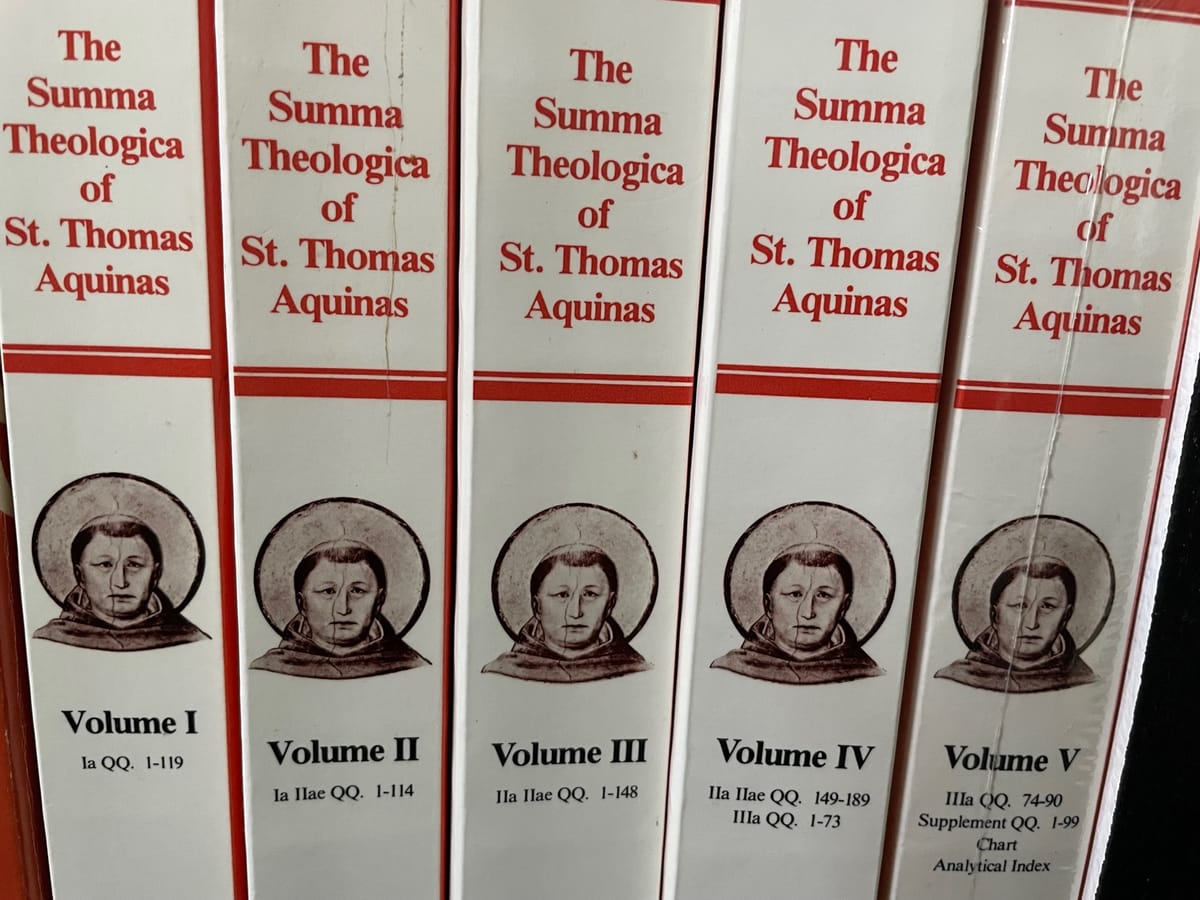1273: Apex of Western Civilization

December 6, 1273.
That's the date St. Thomas Aquinas had such an intense experience or vision during Mass, that he stopped writing.
For 35 years, Aquinas had used the written word to explain pretty much everything. He provided proofs of God's existence that atheists still struggle to refute. He wrote legal treatises, showing how the divine law works through the natural law to give us human law. He described the virtues; he described the vices. He explained the sacraments.
And then he stopped in the middle of Part III of his Summa Theologica and told his friend that everything he had written seemed like chaff.
Some historians speculate he'd had a stroke, but that's highly unlikely. He wasn't aphasic: his intellect and speech were perfectly normal until he died a few months later.
Perhaps I should restate that. His intellectual and speaking abilities were perfectly intact.
His refusal to use them after his experience at Mass hardly seems normal to us today.
The Clash within Aquinas Was a Showdown between the Hemispheres
Aquinas didn't have a stroke. He had a mystical experience.
Iain McGilchrist calls the event "the single most dramatic demonstration of the inadequacy of prose to speak of the divine."
He's right, but I'd take it further: The event was the greatest showdown between the left and right hemispheres ever seen.
Aquinas was a man of massive rational (left hemispheric) abilities and Aquinas was a massively holy man (a right-hemispheric quality . . . only the right hemisphere communicates with the divine). They clashed with one another on the Feast of St. Nicholas in 1273, during Mass.
Aquinas' left hemisphere's explicit intellectual efforts and the avalanche of written works that came out of it crashed into his right hemisphere, but his right hemisphere didn't flinch.
His explicit thought processes and the words that flowed from them dissipated.
Like chaff in the wind.
Aquinas himself was fine, but the efforts of his left hemisphere--written words--were demolished. He saw--intensely, up close, first-hand--that words could never convey what he had seen.
So he quit.
The right hemisphere's dominance in the clash was total.
Aquinas Was and Continues to be Relevant
So why do I claim the event is the most significant event in the history of Western Civilization?
A lot of reasons.
Read the rest




